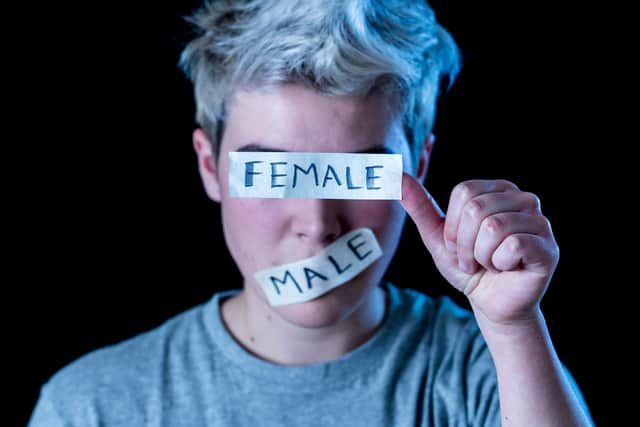Consider the evidence on gender dysphoria - Dr Anthony Latham, Dr Anne Williams, Dr Calum MacKellar and Dr Angus McKellar
Up until now, transgender individuals were given the possibility of changing their birth gender under the UK Gender Recognition Act 2004. To do this, persons must obtain a certificate from a Gender Recognition Panel after having been medically diagnosed with significant dysphoria and lived successfully, for at least two years, in the opposite gender.
However, the majority view on the Human Rights and Civil Justice Committee is now proposing to change the present legislation by removing the requirement for applicants to provide a medical opinion stating that they are affected by gender dysphoria. In addition, it wants to reduce the minimum age of applicants from 18 to 16 years old as well as the period during which they must have lived in their acquired gender before applying from 2 years to 3 months. Finally, it wants to abolish the Gender Recognition Panel with applications just being sent to the Registrar General for Scotland. In other words, it would enable individuals to legally change their birth gender without any medical or other evidence whatsoever.
Advertisement
Hide AdAdvertisement
Hide AdHowever, this is unreasonable since gender dysphoria is a medical diagnosis and must therefore be associated to biological realities. Moreover, Scottish NHS doctors have a key role in caring for, and supporting, individuals with gender dysphoria since many have coexisting mental disorders. For example, the latest and most comprehensive studies to date (2022) shows that a high prevalence of gender dysphoria/incongruence exists in persons with autism spectrum disorder traits., Moreover, research shows that many children with gender dysphoria have significant psychological and psychosocial vulnerabilities.


Thus, without a medical appraisal, it is very likely that many young persons may embark on risky life-changing procedures which they do not understand. This is all the more concerning since follow-up studies indicate that, overall, the distress experienced by young people affected by gender dysphoria disappears in about 85% of cases either before or early in puberty though the rates in the individual studies vary widely.
The majority of MSPs on the Human Rights and Civil Justice Committee believe that the new proposals will be more humane and less intrusive, but we would take issue with the implication that current interactions between individuals and their GPs are in any way inhumane and intrusive. It is also very concerning that the Stage 1 Report from the Committee often only mentioned the 40 witnesses (of which only one seemed to be actively involved in medical practice), who were selected (on what basis?) to give oral evidence. This is surprising since the written submissions, which did address the biomedical evidence, was extensive.
In summary, the majority position in the report from the Human Rights and Civil Justice Committee is unworthy of the high expectations of the Scottish Parliament and the Scottish people since it is unreasonable, unprofessional, and does not sufficiently address the biomedical evidence. Moreover, if the Scottish Parliament does accept the majority view of the Committee in removing the requirement of a medical opinion before gender transitioning takes place, this will certainly lead to some young persons being harmed.
Dr. Anthony Latham (Retired GP), Chair of the of Scottish Council on Human Bioethics, Dr. Anne Williams (GP), Vice-Chair of the Scottish Council on Human Bioethics, Dr. Calum MacKellar (Biomedical Ethicist), Director of Research of the Scottish Council on Human Bioethics and Dr. Angus McKellar (GP).
Comments
Want to join the conversation? Please or to comment on this article.